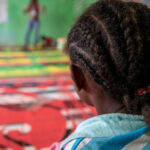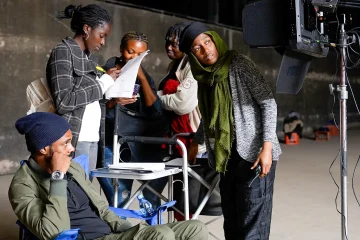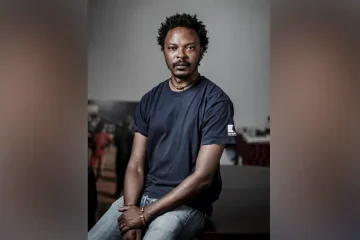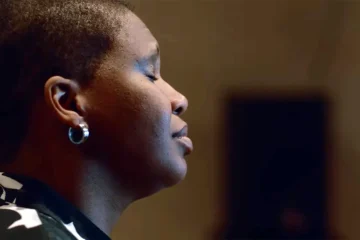ON any given day, Moesha Kibibi Tajiri’s house, located in the heart of scenic Madaraka Estate in Nairobi, can be home to as many as 30 children, all eager to welcome visitors with the greeting, “feel at home.” It may be a crowd, Tajiri is quick to explain, but these are just some of the over a thousand she has “adopted”, country-wide.
“I have four types of kids: orphans, children from mentally unstable parents, special needs children and those coming from vulnerable spaces. I pay rent to 14 different houses in different ghettos in the country. And despite all challenges, we are a happy family, I try to make sure that my children glow,” Tajiri shared.
Tajiri sponsors the housing of 142 vulnerable children in Nairobi and a total of 1,644 people across Kenya. That includes not only children but also vulnerable young women, mothers and men.
Tajiri is best known in Kenya as an award-winning dancer and the only female member of the FBI Dance Crew – a successful dance group.
However, the dancer was raised in Majengo, an informal settlement in the Pumwani area of Nairobi. Passionate about both learning and dance, she was struck by tragedy at the age of 13 when both of her parents passed away, and she was left in the care of relatives.
Her relatives demanded that she choose between dance and education. Refusing to make that choice, she was ostracised.
“I was chased from home. I was supposed to join Form One,” she narrated.
Now homeless, Tajiri met a couple of boys who loved dancing as much as she did. They regularly visited a community hall where they would watch dancers perform.
Inspired by the passion and skill of these older dancers, the friends started the FBI Dance Crew in 2007.
“We formed a team… just young boys and one girl,”
Shortly thereafter, Kenyan free-to-air channel Citizen TV started a dance show, called Sakata. The team entered. Although Tajiri was not able to perform during that first season because she was still in school and too young, the team did well, coming second. Disappointed at not winning, they were advised to join the show again for Season 2.
“When Season 2 started, I was able to participate. We practised so hard and we won that season,” Tajiri shared.
It was during this time that Tajiri’s star started to rise as the only female member of a big dance group. She received a flood of messages of support and requests to teach people how to dance as well as requests to motivate and inspire young, upcoming dancers.
“That’s where I started a project called ‘Come to Your Hood’ where I would go to hoods and ghettos and talk to people,” Tajiri said.
With Coming to Your Hood, Tajiri travelled throughout Nairobi, motivating young people. She also channelled the vast majority of her earnings into the project. She used the money to buy food and basic commodities to help the families she visited.
“I would go there and teach them dancing and have personal conversations with them. Then I realised, ‘These kids are going through what I went through’.”
She expanded her work, going from county to county. She noted that most of the children in the communities she visited needed help, so she decided to knock on governmental and parastatal doors to seek help.
“But I noticed, some of the government officials did not care and were using the children for publicity,” she said.
So she turned to her dance crew to make a difference.
Whenever the FBI Dance Crew danced in a new county, she would approach the heads of schools in the area. For every 50 schools she visited, she recounted, around 5 or 6 schools would agree to take care of the education of some of the needy children she was caring for. Usually, a school would agree to take care of three to five children.
With Tajiri already channelling around 80% of her earnings to the welfare of her extended “family” occasional assistance from well-wishers and donors became more and more important.
“Social media has also played a big role. Sometimes when we go live on TikTok, a person can gift you a lion,” she explained.
A TikTok lion is an online gift of US$400. Tajiri has 449.9 thousand followers on TikTok and her account has 9.3 million likes.
“I am very rich in positivity and prayers, and I don’t give up. That is how all my kids are in school, some of my kids have finished school, some are in university, and some are even older than me,” she shared.
Erick Kamau. 16, is one of Tajiri’s children. He has been living with her for the last two years.
“Mum is the best. I hope she never lacks. In the future, I would love to be an engineer and help people as mom does,” he said, as he lit a charcoal stove to prepare lunch in the home.
At the end of every month, Tajiri bulk shops and then repackages the groceries, sending them all over the country to take care of “family members”.
Here welfare work has meant that Tajiri has been unable to participate in several high-profile competitions, or take jobs outside of the country.
“At first, I used to leave well-wishers to take care of the children, but they would beat the children and abuse them. So I always want to be present so that I can protect and live with them,” she explained.
Some of the children suffer from chronic conditions. By being present, she can ensure that they take their medicine and receive regular check-ups.
According to 2022 research by The University Of Nairobi, some 60,000 children live on the streets of Nairobi.
Commending Tajiri for her work, Sifa Favour, the CEO of an NGO that represents street children, explained that far more needs to be done for the city’s tens of thousands of street children.
“Feeding children in the street is not enough. Most importantly, children need to be in a happy home where they are taken care of and loved,” Favour said.
Meanwhile, Tajiri is determined to do whatever she can to ensure the children she helps get the kind of home she was only able to dream about. With one of her early childhood passions now a means of ensuring that can, she is also on the cusp of pursuing her other passion – education.
Offered a scholarship by Nairobi’s Strathmore University beginning January 2024, she is pursuing a degree in Journalism and Mass Communications.
“I have always wanted to continue my studies. This came true, as I was offered a scholarship,” she shared.



















